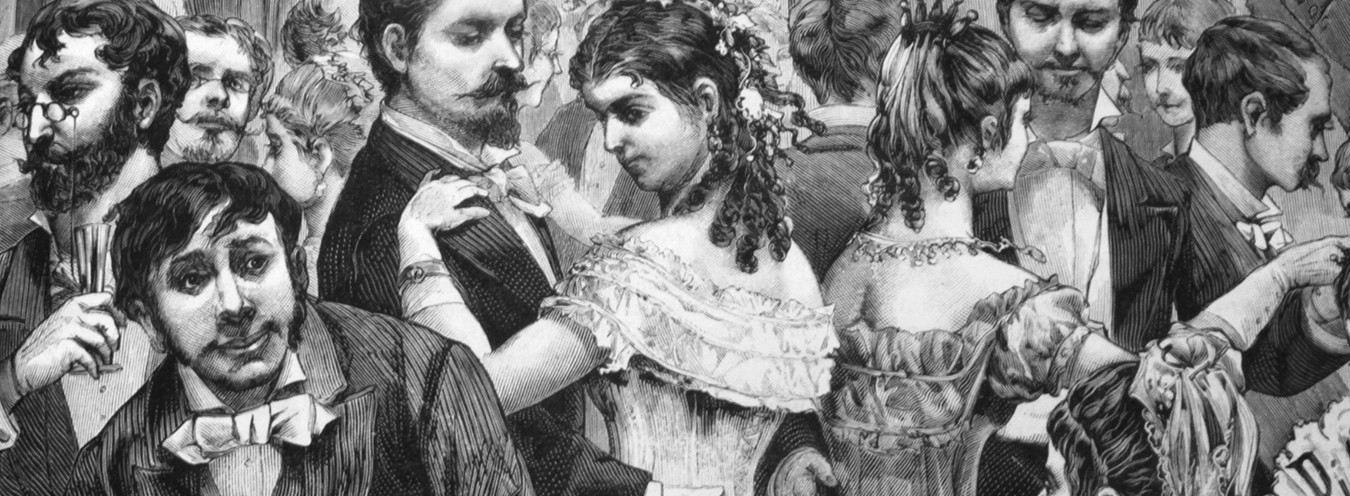
Drawing-Rooms and Salons
Izabela loved the world of drawing-rooms to distraction; she could only quit it for the grave. (208)
The phrase “drawing room” is constantly reiterated through the pages of The Doll. A special room for receiving guests can be found even in the apartments of people with limited income (Helena Stawska or Mr Wirski). The Parisian drawing-rooms, mentioned by Izabela Łęcka, also connoted a specific form of high-class socializing: social gatherings after a visit to the theatre in the evenings. The 1873 guidebook to Warsaw states that the necessary means to create this sort of a drawing room modelled on the French tradition of salons, include financial resources that allow one to lead a sumptuous lifestyle (either in reality or in appearance), a certain degree of savoir-faire and, unfortunately, speaking French to the exclusion of Polish, adding a sad comment: There is no salon in Warsaw in the full meaning of this word.
Indeed, Warsaw’s salon life was mercilessly exposed by Prus to boil down to the idle and shallow search for the simple joys of eating, card playing, flirting and gossiping. Such is the atmosphere of the permanent feast created in the novel by the social group that calls itself the elite (mostly based on noble birth, sometimes material wealth). They do not foster any values, whether material, intellectual or artistic. If they care to notice scholars and men of science, it is just as a passing attraction, a curiosity. At one point in his conquest of Warsaw salons to win Izabela Łęcka’s hand, Wokulski is stopped short, beset by gnawing doubts: What is the value of a life spent decaying between the club, my store and drawing-rooms where one has to play whist to avoid gossip, or gossip to avoid playing whist? His thoughts on Izabela are equally sobering: What did she do? Nothing. She adorned drawing-rooms.
→ Balls; → Accommodation;
Bibliografia
- F. M. Sobieszczański, W. Szymanowski, Przewodnik po Warszawie, prefaced by F. Fryze and I. Chodorowicz, Warsaw 1873.
- E. Umińska-Tytoń, Polszczyzna dziewiętnastowiecznych salonów, Łódź 2011.


